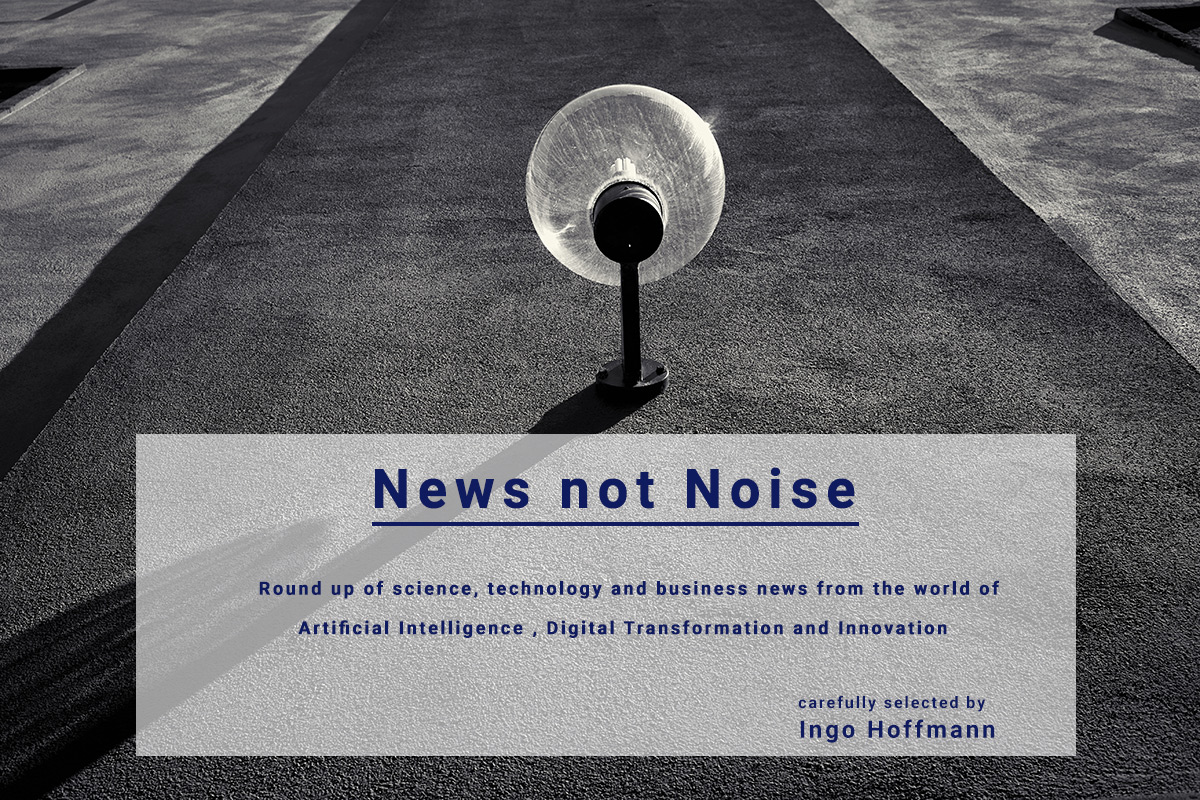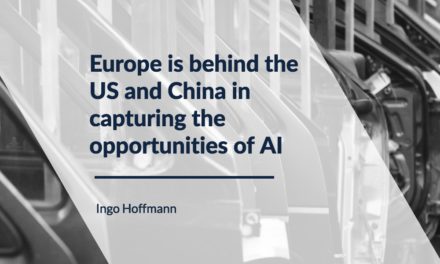
News not noise #13
This weeks edition is looking at Alibaba and how it has become a „smart business“ driven by a tech-enabled platform and machine learning. There are interesting views on the status of autonomous driving looking at Tesla and Waymo. And we have a white paper on Chinas open source strategy for AI.
Business and Innovation
Alibaba and the Future of Business | HBR
Great read by Ming Zeng on Alibaba , one of the 10 most highly valued companies today, as an example of tomorrow’s “smart business”: a tech-enabled platform that coordinates multiple business players in an ecosystem. Players in the ecosystem share data and apply machine-learning technology to identify and better fulfill consumer needs. He argues that Alibaba does what Amazon, eBay, PayPal, Google, FedEx, wholesalers, and a good portion of manufacturers do in the United States, with a healthy helping of financial services for garnish.
The next generation of AI assistants in enterprise | O’Reilly
Alan Nichol on the five levels of AI assistants: From notification assistants to autonomous organizations. Chatbots are only the first step toward autonomous organizations.
The AI-first startup playbook | venturebeat
How can you applied the Minimum Viable Product (MVP) approach to your data and AI strategy and become an AI-first startup? Mark Gorenberg and Ivy Nguyen are proposing a 3 step approach: 1. Test the data for predictiveness, 2. Test for model-market fit, and 3. Test for data and model shelf life
Autonomous Driving
Tesla, software and disruption | Benedict-Evans.com
Another really interesting read , this time by Benedict Evans, on one innovation, disruption and the role of software and machine learning. He is looking at Tesla and their strategy to disrupt the car industry. He argues that autonomy (based on data and machine learning) is the key battle field and Tesla is not just competing with car companies – it’s competing with other software companies.
Waymo’s Robot Cars, and the Humans Who Tend to Them | The Atlantic
Alexis C. Madrigal on Waymo’s commercial robotaxi launch and how important human labor still is for running the service, including technicians, dispatchers, “fleet response,” and “rider support.” While it’s not hard to imagine what the mechanics and dispatchers do—they keep the cars on the road and in the right places—the last groups are a little different.
Open Source , Open Data and AI
White Paper on the Development of China’s Artificial Intelligence Open Source Software | Jeff Ding
Jeff Ding has translated a white paper initiated by the Chinese Ministry of Industry and Information Technology on the status and strategy for a chinese Open Source strategy for AI. Interesting too see that they are not only looking at technology components but also applications for industries such as manufacturing, education, medicine and others.
New Open-Source Projects Emerge for Machine Learning | datanami
Two open-source projects contributed by Chinese tech giants Baidu and Tencent will focus on machine and deep learning advances with the long-term goal of making the AI technologies easier to use while advancing cloud services using deep learning frameworks
Datopolis by the Open Data Institute | Nesta
Interesting approach by the Open Data Institute (ODI) to encouraging governments, stakeholders and citizens to see the benefits of more open approaches to data collection, analysis and distribution : a strategy board game that is all about open data.




